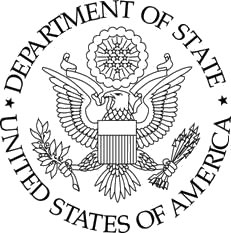 Last week, PIJIP staff submitted a Freedom of Information Act Request to the State Department. The request was for the Circular 175 memo, the accompanying Memorandum of Law, and subsequently related documents in connection to the negotiation and conclusion of the Anti-Counterfeiting Trade Agreement (ACTA).
Last week, PIJIP staff submitted a Freedom of Information Act Request to the State Department. The request was for the Circular 175 memo, the accompanying Memorandum of Law, and subsequently related documents in connection to the negotiation and conclusion of the Anti-Counterfeiting Trade Agreement (ACTA).
The Circular 175 procedure is the State Department’s method of verifying that pending treaties are a valid use of the US government’s treaty making power and that all US foreign policy is negotiated and concluded in a coordinated manner. As described on the State Department website, “the Circular 175 procedure seeks to confirm that the making of treaties and other international agreements by the United States is carried out within constitutional and other legal limitations, with due consideration of the agreement’s foreign policy implications, and with appropriate involvement by the State Department.”
Each Circular 175 is accompanied by a Memorandum of Law which the Department of State describes as “generally” including the following:
- “A discussion and justification of the designation given to the proposed agreement (treaty vs. executive agreement);
- “An explanation of the legal authority for negotiating and/or concluding the proposed agreement, including an analysis of the Constitutional powers relied upon as well as any pertinent legislation;
- “An analysis of the issues surrounding the agreement’s implementation as a matter of domestic law (e.g., whether the agreement is self-executing, whether domestic implementing legislation or regulations will be necessary before or after the agreement’s execution).”
We made this request because USTR has publicly espoused that ACTA is nothing more than a memorandum of understanding and/or an executive agreement involving trade policy with the countries involved, and therefore, not an international agreement that must be submitted and ratified by Congress. However, according to 22 CFR §181.2, only the Office of the Legal Advisor for the State Department can make that determination.
In that regard, if the State Department did not issue a Circular 175 memoranda for ACTA, PIJIP is also asking why the Office of the Legal Advisor does not feel that ACTA qualifies as an international agreement under 22 CFR §181.2. We want to know what the Department of State thinks ACTA is, if not an international agreement. ACTA sets standards for intellectual property which can curb Congress’s ability to regulate domestic intellectual property laws in the future. In the end, the State Department needs to answer what makes ACTA different from an international agreement, and consequently, different from all other intellectual property standard setting agreements that were submitted to Congress for approval.
For more information on the problems inherent in classifying ACTA, please see: ACTA’s Constitutional Problem: The Treaty that is Not a Treaty.
Chelsea Masters is a law student at WCL, where she is a Deans Fellow at the Program on Information Justice and Intellectual Property. (chelsea.m.masters@gmail.com)




